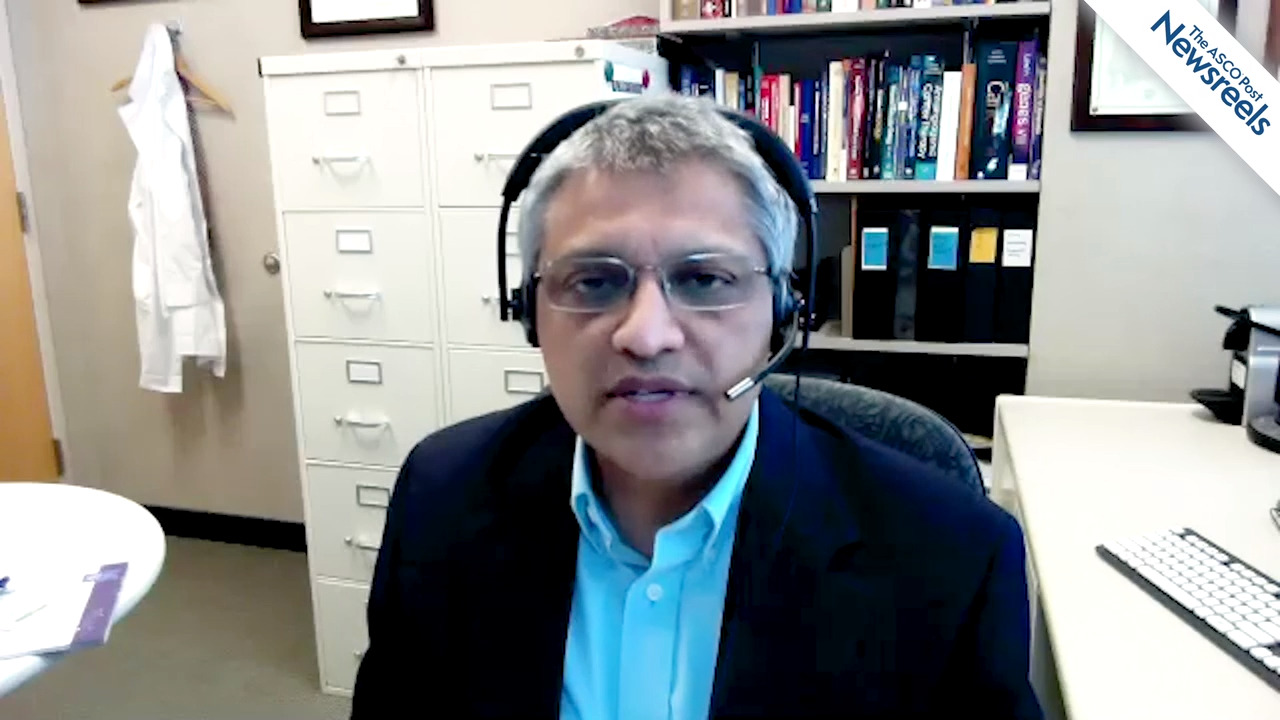Cynthia X. Ma, MD, PhD, on Breast Cancer: Neoadjuvant Endocrine Treatment for ER-Positive, HER2-Negative Disease
ASCO20 Virtual Scientific Program
Cynthia X. Ma, MD, PhD, of Washington University, discusses results from the ALTERNATE trial, which showed neither fulvestrant nor fulvestrant plus anastrozole significantly improved endocrine-sensitive disease rate compared with anastrozole alone in postmenopausal patients with locally advanced estrogen receptor–positive, HER2-negative breast cancer (Abstract 504).
The ASCO Post Staff
Mikkael A. Sekeres, MD, of the Cleveland Clinic, discusses data from a phase II study of pevonedistat plus azacitidine vs azacitidine alone in patients with higher-risk myelodysplastic syndromes, chronic myelomonocytic leukemia, or low-blast acute myeloid leukemia (Abstract 7506).
The ASCO Post Staff
As Thomas Powles, MD, PhD, of Queen Mary University of London, prepares to deliver his late-breaking presentation at the ASCO20 Virtual Scientific Program (LBA-1), he talks with Christopher Sweeney, MBBS, of Dana-Farber Cancer Institute, about current therapy: PD1/PDL1 inhibition in second-line treatment and as monotherapy in the first-line setting, as well as the concept of maintenance switch.
The ASCO Post Staff
Howard A. Burris III, MD, FACP, FASCO, talks about some of the reports of research developments he is looking forward to and how future conferences could incorporate virtual presentations.
The ASCO Post Staff
Shaji Kumar, MD, of the Mayo Clinic, discusses findings from the ENDURANCE trial, which showed bortezomib, lenalidomide, and dexamethasone should remain the standard of care in patients with newly diagnosed standard- or intermediate-risk multiple myeloma, for whom early autologous stem cell transplant is not intended (Abstract LBA3).
The ASCO Post Staff
Scott Kopetz, MD, PhD, of The University of Texas MD Anderson Cancer Center, discusses phase III results of the BEACON CRC study, which confirmed that, compared with standard chemotherapy, encorafenib plus cetuximab with or without binimetinib improved overall survival and objective response rate in previously treated patients with BRAF V600E–mutated metastatic colorectal cancer (Abstract 4001).





